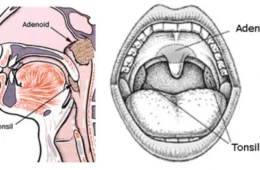
Experiencing discomfort when you bite down after a root canal? You’re not alone. This common issue stems from the healing process, but understanding it empowers you to manage it effectively. At EliteFixDenture.com in Chicago, we prioritize your comfort. Let’s break it down step by step.
What Is a Root Canal?
A root canal treats infection or damage deep inside your tooth. It saves the natural tooth by removing inflamed or infected pulp—the soft tissue with nerves and blood vessels.
Dentists perform this procedure to prevent tooth loss. Without it, bacteria spread, causing severe pain and abscesses. Modern techniques make it straightforward and effective.
In Chicago’s chilly winters, dry air can heighten sensitivity post-procedure. Stay hydrated to ease this.
Signs You Need It

Spot early signs to avoid worse pain. Persistent issues signal it’s time for professional care.
Here are key symptoms:
- Ongoing toothache: Dull or sharp pain that lingers, even without triggers.
- Sensitivity to temperature: Lingering ache from hot or cold foods and drinks.
- Swelling in gums: Tenderness or a pimple-like boil near the tooth.
- Pain with pressure: Discomfort when biting or touching the tooth, as dying pulp irritates surrounding ligaments .
- Discolored tooth: Grayish hue from internal infection.
- Loose tooth: Infection weakens supporting bone.
- Chipped or cracked tooth: Allows bacteria entry, sparking inflammation.
If pressure on your tooth in Lakeview’s bustling cafes causes sharp twinges, schedule a checkup soon.
The Procedure

Root canals unfold in a few precise steps. Your dentist ensures comfort every step.
First, they numb the area with local anesthetic. A dental dam isolates the tooth for cleanliness.
They drill a small access hole, remove infected pulp, and clean the canals thoroughly. Antibiotics fight any lingering bacteria.
Next, they fill the canals with a rubbery material and seal them. A temporary filling protects until a crown caps it—often in a follow-up visit.
The whole process takes 60-90 minutes. Most feel only mild pressure, not pain .
Dr. Aziz Liaquat at EliteFixDenture.com expertly handles these, drawing on his implant dentistry skills for seamless restorations.
Benefits of Root Canal Treatment
Root canals restore your smile without extraction. They eliminate infection and preserve natural tooth function .
You regain normal biting and chewing. The treated tooth lasts a lifetime with proper care.
Compared to implants or bridges, it’s less invasive and cost-effective long-term. Enjoy Chicago’s diverse foods—from Lincoln Park’s deep-dish to Lakeview’s ethnic bites—without worry.
Aftercare Essentials
Healing starts right after. Follow these tips for smooth recovery.
- Take over-the-counter pain relievers like ibuprofen for mild soreness.
- Eat soft foods: yogurt, mashed potatoes, or smoothies for a few days.
- Avoid chewing on the treated side until the crown fits.
- Brush gently twice daily and floss once; use antibacterial mouthwash.
- Skip smoking—it slows healing.
- Stay hydrated, especially in winter’s dry Chicago air.
Mild pressure sensitivity fades in days . Track progress daily.
| Aftercare Tip | Why It Helps | Chicago Tip |
| Soft diet | Reduces pressure on healing tooth | Try Lakeview’s smoothie spots for easy nutrition |
| OTC pain meds | Manages inflammation | Stock up before winter chills set in |
| Gentle oral hygiene | Prevents new infections | Use a humidifier against dry indoor air |
When to See a Dentist
Contact your dentist if pain persists beyond a few days. Throbbing or increasing discomfort signals issues like residual infection .
Watch for swelling, fever, or uneven bite. Prompt care prevents complications.
In Lincoln Park’s fast pace, don’t ignore signals. Early visits save time and teeth.
For more on the procedure, visit Mayo Clinic’s root canal guide .
Mini FAQ
Q: Why does my root canal tooth hurt with pressure?
A: It often results from temporary inflammation around the treated area as it heals. Mild cases resolve quickly .
Q: How long is post-root canal pain normal?
A: Expect mild discomfort for 1-3 days. It should lessen daily.
Q: Can I eat normally after?
A: Stick to soft foods initially. Resume regular eating once the crown is placed.
Q: What if pain worsens?
A: See your dentist immediately—it may need further cleaning.
Q: Does winter affect recovery in Chicago?
A: Dry air can dry gums, increasing sensitivity. Use a humidifier and stay hydrated.
Q: Is a crown always needed?
A: Yes, it protects the weakened tooth for long-term strength .
Q: How successful are root canals?
A: Over 95% succeed, saving your natural tooth for years.
Q: What’s the best pain relief?
A: Ibuprofen reduces inflammation effectively. Consult your doctor first.
This article is for informational purposes only and not a substitute for professional dental advice.
For expert dental care in Chicago, visit EliteFixDenture.com.
Reviewed by Dr. Aziz Liaquat, Implant Dentistry





